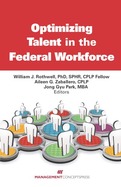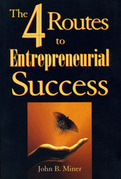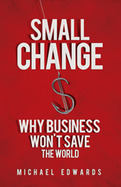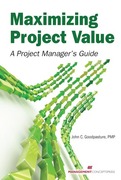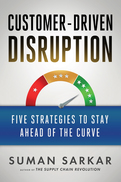• Best practices for recruiting and selecting employees
• Proven methods for developing and training employees
• Optimal deployment and placement processes.
This text is a must-read for anyone in or working toward a government management position.
BOTH PRAGMATIC AND INSPIRING, The Joy of Working from Home shows the current or prospective home-office worker how to set up an efficient home office and provides the support for making what for many will be a major life change. Combining detailed, useful information with encouraging advice and anecdotes, the book gives numerous positive examples of individuals who have successfully made the transition. The author-himself a home-worker for many years-provides realistic methods for striking a healthy balance between business and personal life.
Addressing the vital questions of lifestyle, and the difficult trade-offs between work and personal priorities, The Joy of Working from Home offers guidelines for wisely allocating every home worker's most valuable resource: time. It shows:
o how to organize both work and workspace efficiently;
o the inherent advantages of using a home-based office to achieve practical and personal rewards;
o techniques for avoiding the stress and distress of letting the demands of work and family intermingle.
Drawing on the experiences of many home-based workers, this book helps solve the problems of self-discipline, financial insecurity, isolation, and interruptions. It also offers valuable advice on dealing with the vulnerabilities that inevitably come with self-employment-creating a professional image, maintaining a positive attitude, nurturing the capacity to persist against obstacles, and developing the flexibility to deal with a variety of clients or customers.
The practical aspects of running a business out of a home office are also addressed. The Joy of Working from Home provides useful strategies for creating a business plan, low-cost marketing techniques, tips for networking in the community, and ways to keep expenses down. There is down-to-earth advice for avoiding the pitfalls of zoning and tax requirements, information on purchasing office equipment and supplies, and guidelines for contracting outside services. A resource section creates access to important publications, home-based business associations, government agencies, and database information for effective business and professional marketing.
This book will appeal to a broad spectrum of current and prospective home office candidates, including the newly self-employed professional, the budding entrepreneur, those weary of the corporate work environment or long commutes, and those determined to restore the balance between their personal and professional lives.
- Written for the 30 million people currently working from home, and the millions more-predicted to embrace one-third of the work force-who will take advantage of this alternative in the next few years
- A complete guide for meeting the practical and personal challenges of successfully working from home on either a part-time or full-time basis
It is a common belief that there is an entrepreneurial personality-that a certain type of person is capable of becoming a successful entrepreneur, while others are not. Research supports this view, and yet there are countless stories of people who have failed in one entrepreneurial venture only to succeed in another, and still others who have achieved initial success, yet failed when their company reached a certain size.
John B. Miner, an expert in the fields of entrepreneurship, human resource management, and personality psychology, has spent 20 years researching these and other curiosities about entrepreneurial success. In this groundbreaking book, he details his extensive research that shows that there is not a single entrepreneurial personality type, but rather, there are four distinct personality types that make for successful entrepreneurs.
Based on 20 years of research and a systematic seven-year study of 100 entrepreneurs, The 4 Routes to Entrepreneurial Success details the distinctive characteristics of each of the four types and explains why they succeed or fail. Using Miner's self-assessment questionnaire, you'll discover whether you possess the talents, skills, and characteristics it takes to start and run your own business. The results of the questionnaire will help you determine how you can be successful as an entrepreneur.
The different routes by which each of the four types achieves success are explored in detail, and numerous real-life examples of established entrepreneurs are included throughout. If you're a would-be entrepreneur, this accessible, easy-to-read, and practical book can help you achieve the success you dream of.
Miner explains that, to be successful, entrepreneurs must concentrate on their special talents and strengths, while finding ways to compensate for their weaknesses to accomplish the rest of the business process. For instance, while Supersalespeople are experts at bringing in new customers, they often lack the necessary management skills to run a successful business, and therefore need someone else to oversee the operations. Expert Idea Generators are good at creating new ideas, but need others to develop effective systems to get them to market. The characteristics of each type of entrepreneur are explored in detail, as well as the routes by which each achieves success, and numerous real-life illustrative case studies of established entrepreneurs are included throughout. Most importantly, Miner provides individuals with practical guidelines for mapping out their own routes to success.
The 4 Routes to Entrepreneurial Success can help you assess not only whether your personality is suited to the entrepreneurial lifestyle, but also what type of venture you should consider and what role you should play in your business to guarantee success. In addition to outlining each type's inherently appropriate career route, Miner insightfully addresses gender differences, the value of entrepreneurial development and formal degree programs, and entrepreneurial options for those who do not fit into any of the types described.
The 4 Routes to Entrepreneurial Success will help prospective entrepreneurs assess their own talents and determine what type of venture offers them the greatest chances for success. Established entrepreneurs will gain new perspective on current problems and learn to foresee and avoid potential pitfalls. Senior managers and human resource managers will find valuable tools for staffing corporate ventures, while bankers, venture capitalists, and other investors can better assess the risk and return related to their investment.
- Groundbreaking research reveals the four personality types of successful entrepreneurs and shows how everyone can learn from their winning ways
- An accessible, easy-to-read, and practical book that can help would-be entrepreneurs achieve the success they dream of
- Offers numerous real-life examples of successful entrepreneurs
- Includes a questionnaire to help readers determine what type of entrepreneur they are
2010
Disruption—the brutal roiling of markets, the decline of long-established brands and products, and the rise of new upstarts—drives business failure and success. Most people think technology causes disruption, but technology merely enables it. Changing customer needs cause disruptions, and too many businesses get caught unaware.
Suman Sarkar offers proven strategies that will enable any business to stay radically close to its customers and address their evolving needs. He argues that businesses need to focus on existing customers first—research shows they're likely to spend more and are more profitable than new customers. Personalization is becoming important for the newer generations in both developed and developing markets, so Sarkar describes approaches to make them cost-effective. In our era of instant gratification, customers want what they want now—Sarkar explains how you can develop and deliver products and services faster than ever. And since a few bad Yelp reviews, social media posts, or angry tweets from customers can ruin you, Sarkar shows how to proactively make sure the quality of your products and services stays better than that of your competitors.
The key to survival in this era of changing customer needs is to focus on and address them quickly so customers don't switch to the competition. Drawing on his experiences with leading companies worldwide, Sarkar offers five strategies and techniques that will keep you ahead of the curve.


